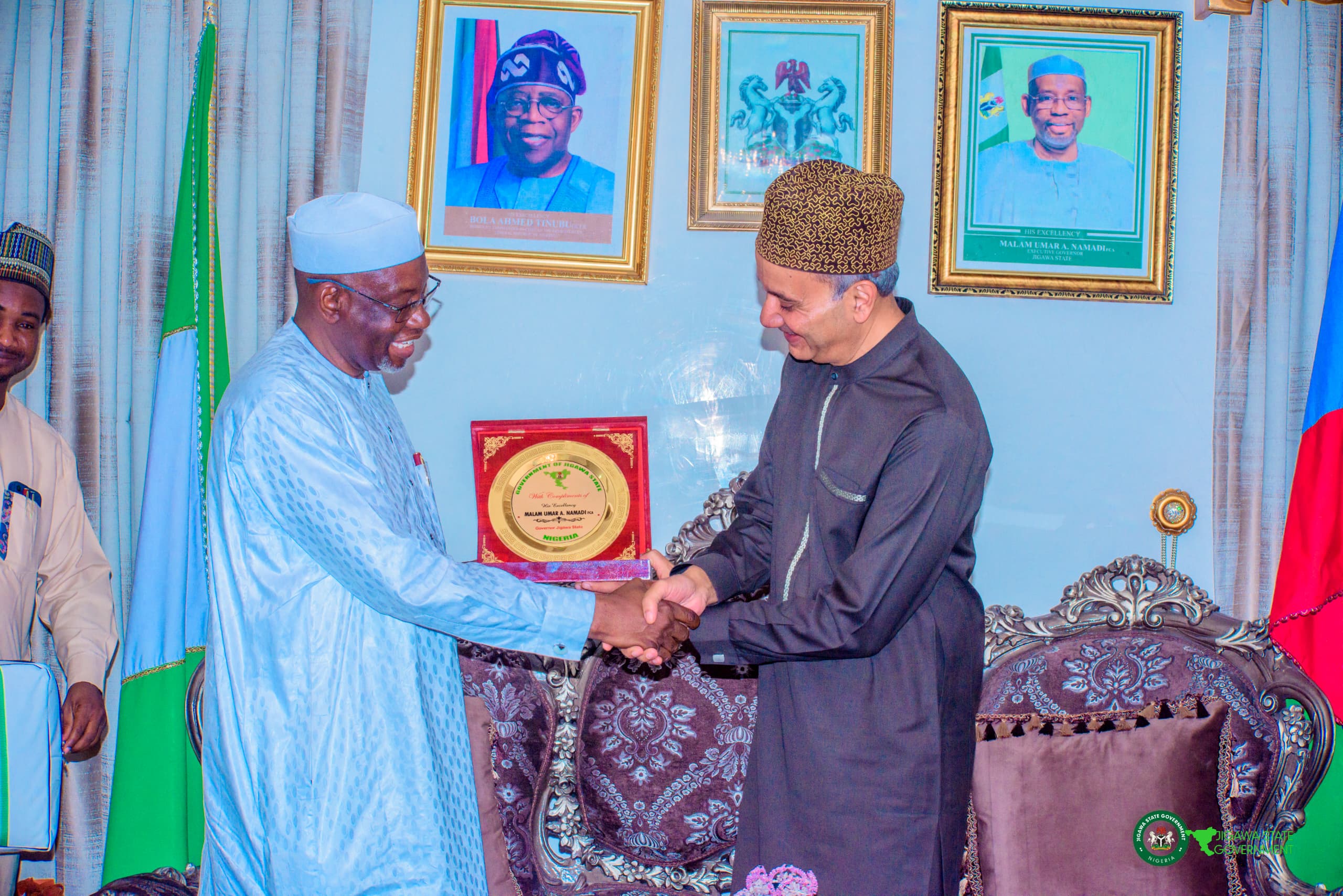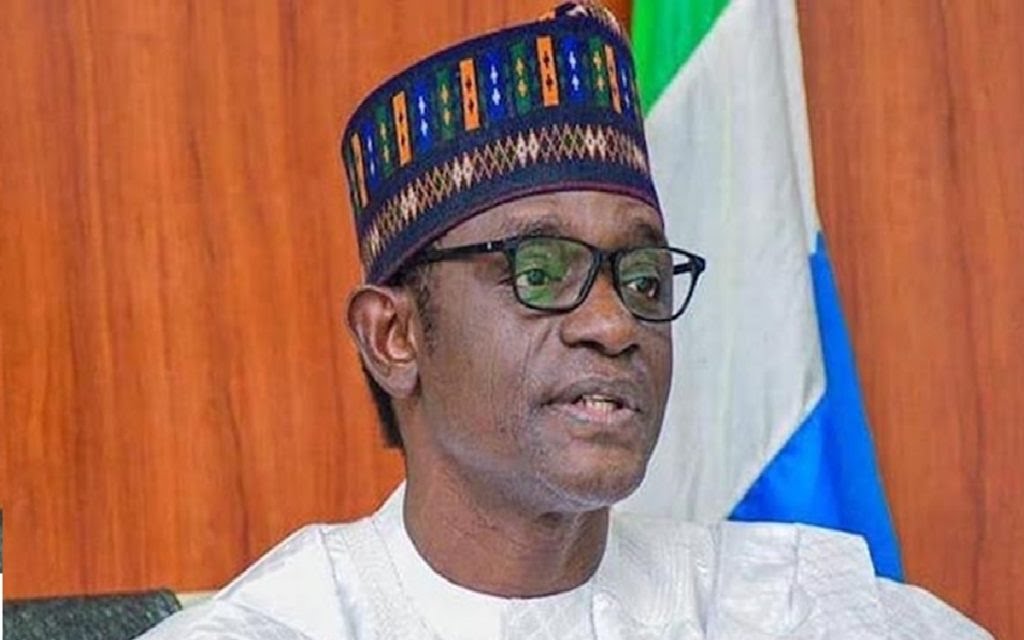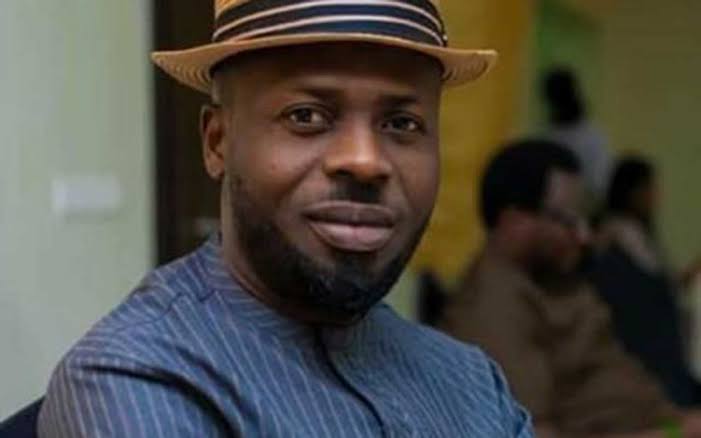By Ahmed Rufa’i, Dutse
The Jigawa state governor, Malam Umar Namadi has urged on the World Bank to key-in to the State’s Information and Communication Technology (ICT) and Digital Economy Initiatives for the State to achieve its objective in that regards
The governor made the call while receiving the county director in Nigeria, Mr. Shubham Chaudhuri in government house on official visit to the state.
Namadi pleaded with the director to use the visit to open new frontiers of development for the State such as support for the ICT & Digital Economy Initiatives in the State.

The governor disclosed that “The overarching mission of World Bank is helping to fight poverty and improve living standards of the people all over the World. While the success of the World Bank is legendary in this respect, challenges still continue”.
According to him “The recent bold reforms by the Federal Government of Nigeria might have stopped the slide towards a serious fiscal crises with renewed hope for macroeconomic stability, at least in the long run. Several factors have continued to conspire against the sustainability of gains achieved”.
“However, in the immediate and short run, these reforms have been apparently very painful to many Nigerians and could potentially reverse the gains achieved in the fight against poverty by both the World Bank as well as by the Federal and State Governments”, he emphasis.
He stated further that “a significant proportion of the so-called middle class are gradually falling into the low-income quadrant. Even at the State level, despite the success stories I have mentioned earlier and the decades of positive impact of the various development projects implemented by the World Bank, the State is still facing multi-faceted development challenges”.
The governor maintained that “Most worrisome of challenges is the persistence of Poverty in spite of decades of Interventions which were implemented in line with the Bank’s mission of leading the fight against poverty”.
Adding that “The 2022 Nigeria Poverty Assessment Report published by the World Bank indicated that Jigawa State is still among those with highest poverty headcount or with highest percentage of the population being multi-dimensionally poor”.
Namadi decried that the number of out-of-school children in the State is still relatively high despite the acclaimed success stories in the implementation of the BESDA Program.
“Another existential challenge is the devastating effects of Climate Change as demonstrated by the adverse effects of perennial floods, desert encroachment, and extreme weather conditions”.
He also stated that “As the Country is Director is aware, Jigawa State has over the years recorded several success stories in the implementation of its development initiatives across various sectors and in the implementation of various PFM Reforms”.
“The agricultural transformation agenda implemented by the State Government has significantly benefited from the Agricultural Development Projects implemented over the years with the assistance of the World Bank, today the State is a major player in the diversification of the National Economy through Agriculture and a great contributor to National Food Security”.
Governor Namadi added that “As we speak, Jigawa State is a leading producer of rice, sesame, hibiscus, industrial tomato, wheat and many other crops in Nigeria. In the area of PFM Reforms, the Jigawa State Government has over the years also pursued several institutional and governance reforms aimed at instituting a regime of fiscal transparency, financial accountability, as well as prudence and value for money in the State’s public expenditure and financial systems”.
He maintained that the state’s success stories in these regards were attested by various independent assessments such as by annual ICAN-Accountability Index Assessments and Budget Transparency Index Assessment by the Civil Resources Development & Documentation Center (CIRDDOC) in which the state has continued to be in the forefront.
Malam Umar Namadi disclosed that even in the ease of doing business, Jigawa state is not doing bad in improving its business environment and investment climate the state is second best-performing state in the recently concluded SFTAS Program.
“I mentioned these because these are success stories in which the World Bank has significantly contributed such as through the State’s participation in the recently closed State & Local Governance Reform Program funded by the European Union but implemented by the World Bank”.
The governor noted that the government and People of the state are most delighted for this high-level in-County mission to the state, this is the first time a country Director of the World Bank in Nigeria is leading a Bank Mission to the state, this is certainly a very important and historical visit for us for to the best of my knowledge.
“On behalf of the People of Jigawa State, who are the direct beneficiaries of all the World Bank Assisted Interventions in the State, we heartily welcome you and your team”
Speaking earlier the World Bank country director in Nigeria, Mr. Shubham Chaudhuri said he in the state with his team on official purpose and hold a technical discussion on the developmental on human and economical sectors.




